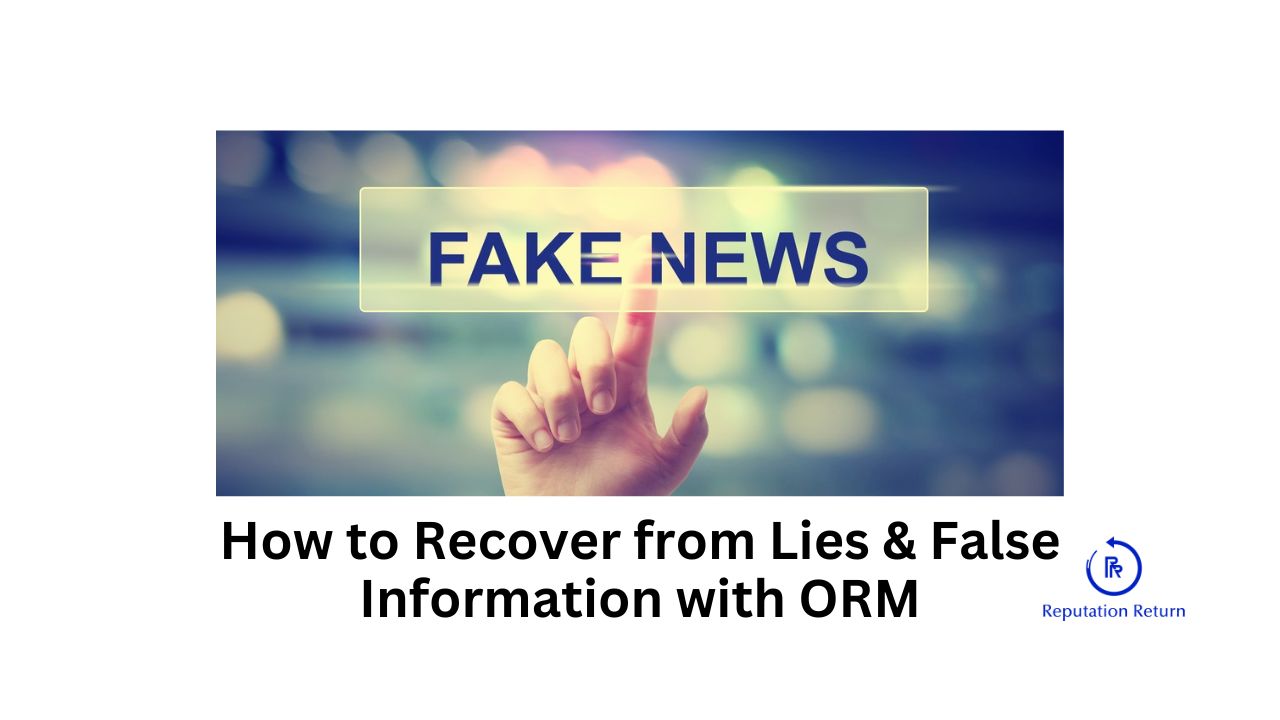False information and rumors can have devastating consequences on an individual’s personal and professional life. Misinformation spreads rapidly, and without a robust strategy to counteract it, the damage can be long-lasting. This article will explore the impact of false information and rumors, the necessity of a crisis management reputation management plan, and the technical aspects of implementing such a plan.
Personal and Emotional Damage
False information and rumors can severely affect an individual’s emotional well-being. Being the target of misinformation can lead to stress, anxiety, and depression. The constant worry about one’s reputation can disrupt daily life, affect relationships, and lead to social isolation. For example, rumors about someone’s personal life can damage their social standing, leading to a loss of friends and social support.
Professional Consequences
In a professional context, false information can be equally damaging. Rumors about unethical behavior, incompetence, or other negative traits can lead to job loss, difficulty finding new employment, and a tarnished professional reputation. For instance, a false rumor about an executive’s involvement in a scandal can lead to their removal from a company and damage their future career prospects.
Financial Impact
The financial repercussions of false information can be significant. Legal fees to combat defamation, loss of income due to job loss or decreased business, and the costs associated with reputation management efforts can add up quickly. For example, a business owner falsely accused of fraud may see a sharp decline in customers, leading to substantial revenue loss.
The Need for a Crisis Management Reputation Management Plan
Immediate Response
When false information and rumors begin to spread, an immediate response is crucial. Delaying a response can allow the misinformation to gain traction, making it harder to counteract. A crisis management reputation management plan should include protocols for swift action, including identifying the source of the rumor, assessing its reach, and crafting an appropriate response.
Transparent Communication
Transparency is vital in managing a reputation crisis. Individuals must communicate openly with their audience, providing clear and accurate information to counteract the false claims. This includes issuing public statements, engaging with media, and using social media platforms to reach a wider audience.
Accountability and Legal Action
Taking accountability, where appropriate, and pursuing legal action against the sources of false information can help mitigate damage. Legal action can serve as a deterrent to others who might spread false information. It’s important to consult with legal professionals to understand the best course of action and ensure that all steps are taken within the bounds of the law.
Implementing a Crisis Management Reputation Management Plan
Monitoring and Detection
The first step in implementing a crisis management plan is monitoring for false information and rumors. This involves using tools and services that track online mentions, social media activity, and news articles. Real-time monitoring allows for the quick detection of potentially damaging information.
Crafting a Response Strategy
Once false information is detected, a response strategy must be crafted. This involves:
- Assessing the Situation: Determine the severity and potential impact of the misinformation.
- Message Development: Create clear, concise, and factual messages to counter the false claims.
- Channel Selection: Decide on the best platforms for disseminating the response, such as social media, press releases, or direct communication with stakeholders.
Engaging with Your Audience
Engagement with the audience is crucial. This involves responding to comments and questions, providing additional information as needed, and maintaining an active presence online. Transparency and honesty in these interactions help rebuild trust and credibility.
Leveraging Positive Content
Creating and promoting positive content can help overshadow false information. This includes sharing success stories, testimonials, and other content that highlights positive aspects of the individual’s personal and professional life. Search engine optimization (SEO) techniques can be used to ensure that positive content ranks higher in search results, pushing negative information further down.
Long-term Monitoring and Adjustment
A crisis management plan is not a one-time effort; it requires ongoing monitoring and adjustments. Continuous tracking of online mentions and public sentiment helps identify new threats and adjust the strategy as needed. Regularly updating the plan ensures it remains effective in addressing evolving challenges.
False information and rumors can cause significant damage to an individual’s personal and professional life. Implementing a crisis management reputation management plan is vital to mitigating this damage and restoring one’s reputation. By responding swiftly, communicating transparently, and leveraging positive content, individuals can counteract false information and rebuild their image. Continuous monitoring and adjustments ensure the plan remains effective in the face of new challenges, ultimately helping individuals navigate the complex landscape of online reputation management.

